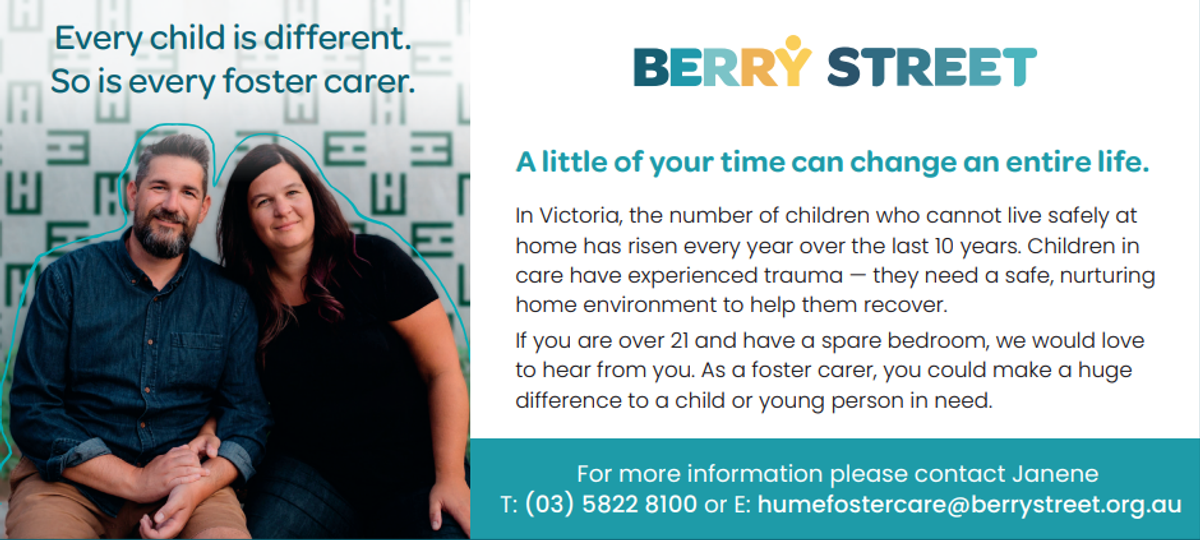Wellbeing

BERRY STREET - Foster Care
Protecting Children from Online Exploitation
Preventing online exploitation
There are common mistakes that parents can avoid to help prevent exploitation. By sharing these, it is our hope that parents, policymakers, school boards and even children will rethink their approach to online behaviour.
1. “That won’t happen to us!” Many victims and their families fall prey to optimism bias, thinking that negative events are unlikely to happen to them. However, online crimes can affect anyone. Unfortunately, these incidents occur more frequently than most people realize. No family is exempt from the potential dangers of the online world.
2. “Everyone else is doing it!” Parents oversharing pictures of their children online has become commonplace. Many cannot resist the pressure or temptation to post photos of their children on social media. Very often, it is these photographs that are edited and distorted to appear as pornographic. All family members need to resist the pressure to overshare pictures online.
3. “My kids don’t mind!” Many children today have a digital presence that was initiated and maintained by their parents without their consent. This disregard for children’s privacy not only undermines their autonomy, but can also have a lasting impact on their self-confidence, their personal and professional future, and the parent-child relationship.
Creating a digital life for children at a young age could also desensitize them to the importance of online privacy. The assumption that children will not mind is erroneous. In one case, a court in Rome decided that a mother should take down all images of her son from Facebook and pay a €10,000 fine if she continued to post photos without his consent.
4. “We cannot keep up with their technology!” Many parents are overwhelmed and intimidated when they cannot keep up with their kids. As technology continues to play a critical role in children’s lives, improving digital literacy of parents through online resources and schools needs to become a priority. Parents need to seek and receive support to understand the technology their children are using.
5. “They’re just online, talking to friends!” Despite being very involved and interested in who their children talk to on the way home from school or at their friends’ houses, parents might not be as aware of who their children talk to online. Just like they show an interest in their child’s real-world interactions, the benefits and dangers of online behaviour need to be an equally important and frequent topic of conversation.
Online child sexual exploitation is a grave and multifaceted issue that demands our unwavering attention. Only by carefully considering these critical concerns can we hope to prevent children from falling victim to these crimes.
Sleep Health
While we know sleep is essential for good health, research shows that many children and young people are not getting enough sleep on school nights. This can affect thinking, concentration, memory, reaction times and mood.
Research shows about 12% of primary school-aged children, a quarter of 12- to 15-year-olds and half of 16- to 17-year-olds don’t get enough sleep on school nights. The recommended amount of time to sleep for primary school-aged children is 9 to 11 hours. For teenagers, it’s 8 to 10 hours.
Signs that your child is not getting enough sleep can include:
· low mood and irritability during social interactions
· reluctance or arguing about getting off devices and going to bed
· falling asleep during the day
· difficulties waking up for school and sleeping in late on weekends to catch up
· changes to communicating or interacting at home.
You can help your child to improve their sleep by:
· establishing a regular sleep pattern and consistent bedtime routine
· supporting them to avoid using electronic devices such as smartphones before going to bed and in bed
· encouraging your child to exercise and spend time outside in daylight, steering clear of vigorous activity in the hour before sleep
· encouraging them to wind down and relax before going to bed.
If your child is still having trouble sleeping, has persistent problems with low mood, excessive daytime sleepiness, restlessness in bed, severe snoring or wakening unrefreshed, despite getting adequate length sleep, they should see a doctor.
For more information on sleep health, you can refer to: · Sleep tips for children and Facts about sleep for parents and school staff, from the Sleep Health Foundation · Why sleep is so important, from the Kids Helpline’s · Sleep explained, from the Better Health Channel.

